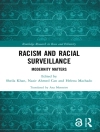`This is a very clear and concise summary of media studies, present and future. There is no other book that can both be used as a teaching tool and can help scholars organize their thinking about new media as this book can′ – Steve Jones, University of Chicago
This book offers an introduction to communication theory that is appropriate to our post-broadcast, interactive, media environment. The author contrasts the `first media age′ of broadcast with the `second media age′ of interactivity.
Communication Theory argues that the different kinds of communication dynamics found in cyberspace demand a reassessment of the methodologies used to explore media, as well as new understandings of the concepts of interaction and community (virtual communities and broadcast communities).
The media are examined not simply in terms of content, but also in terms of medium and network forms. Holmes also explores the differences between analogue and digital cultures, and between cyberspace and virtual reality.
The book serves both as an upper level textbook for New Media courses and a good general guide to understanding the sociological complexities of the modern communications environment.
Daftar Isi
INTRODUCTION – A SECOND MEDIA AGE?
THEORIES OF BROADCAST MEDIA
THEORIES OF CYBERSOCIETY
THE INTERRELATION BETWEEN BROADCAST AND NETWORK COMMUNICATION
INTERACTION VERSUS INTEGRATION
TELECOMMUNITY
Tentang Penulis
David Holmes is a Lecturer in Communications and Media, Monash University












